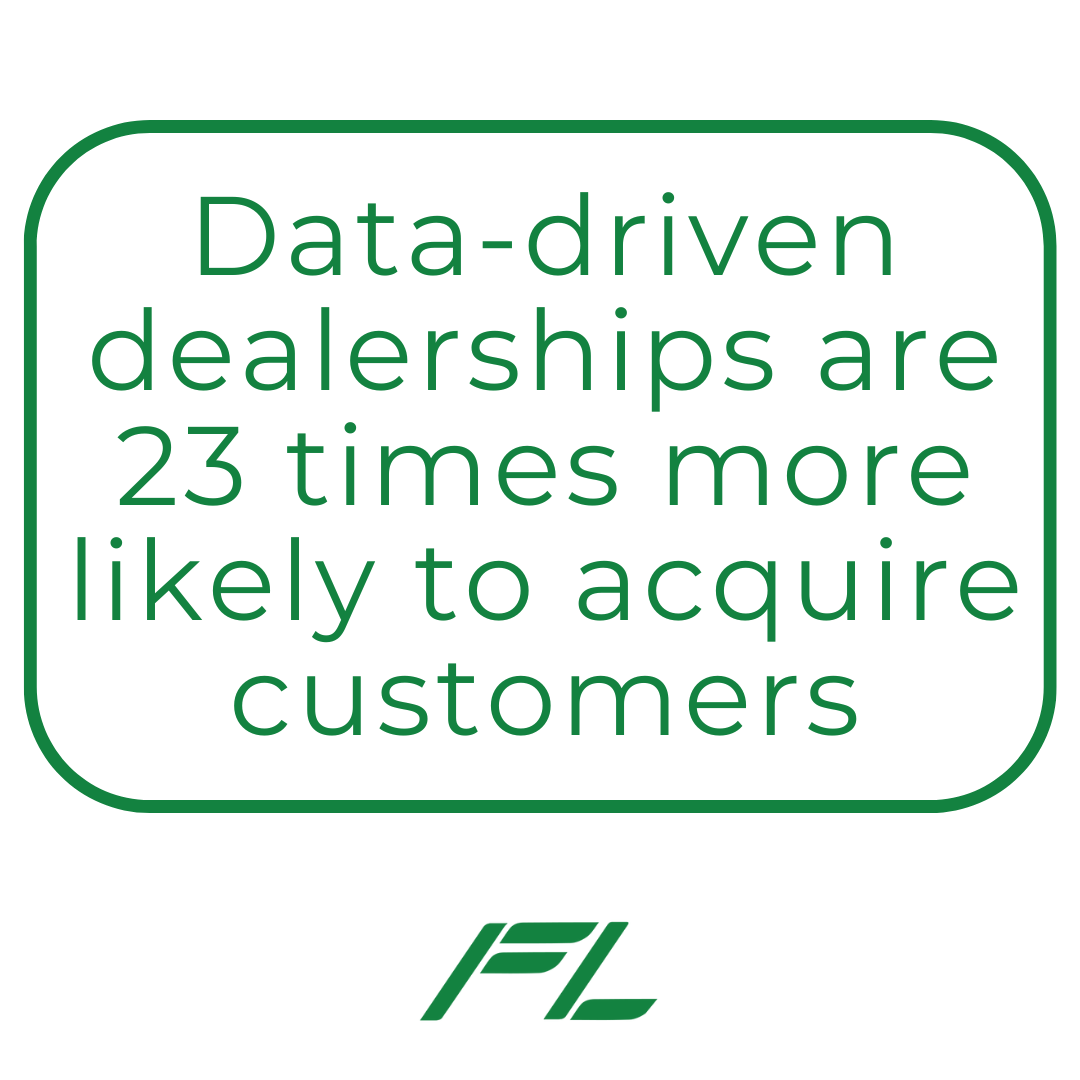Did you know that 85% of consumers prefer personalized experiences when shopping for vehicles? This statistic highlights the importance of truly understanding your clientele in Florida’s competitive auto industry. Data analytics serves as an invaluable tool for auto dealership owners and executives, granting access to deep insights into consumer patterns, preferences, and behaviors. Dealerships can unlock a wealth of knowledge by analyzing data collected from sales records, online interactions, and customer feedback. This rich data resource enables the development of finely tuned sales tactics and the optimization of service offerings, ensuring they appeal to Florida’s diverse and dynamic consumer landscape.
Leveraging these insights ushers in a transformative shift towards highly personalized marketing and customer engagement strategies. In Florida’s bustling marketplace, differentiation and foresight in meeting consumer expectations are crucial to standing out. Proactively utilizing data equips dealerships to serve the current market effectively and prepares them to evolve with changing consumer trends. Adopting a data-driven mindset enhances a dealership’s resilience, fostering long-term growth and establishing a reputation for innovation and customer-centricity in a highly competitive environment.
The Power of Data in Understanding Consumer Behavior
Understanding consumer behavior has become pivotal in establishing a competitive edge in the bustling Florida auto industry. In this regard, data analytics emerges as a beacon, shedding light on the intricate patterns and trends that define customer desires and habits. Dealerships unlock a treasure trove of insights by meticulously analyzing sales data, scrutinizing online activities, and sifting through customer feedback. These insights are instrumental in sculpting sales strategies and refining service offerings, ensuring they resonate deeply with the multifaceted consumer base in Florida.
A pivotal revelation from a McKinsey & Company report underscores the leverage gained through customer analytics. It indicates that companies ingrained in customer analytics prominently outshine their competition in sales growth. This vital piece of evidence accentuates the significance of not merely meeting but preemptively responding to customer needs. Given Florida’s market diversity and dynamism, data-driven insights empower dealerships to tailor interactions and offerings effectively, engaging a broad spectrum of customer segments.
The adaptation to consumer requirements facilitated by data analytics heralds a shift towards more personalized and efficient dealership models. With strategies that are fine-tuned based on data, dealerships can elevate their marketing endeavors, amplify customer service, and, most importantly, nurture lasting relationships with their clientele. Acting on the insights derived from data analytics ensures that services and products align closely with what the market demands, setting a dealership apart in a crowded and competitive landscape.
By embracing the power of data, auto dealerships in Florida are not only equipped to meet the existing market demands. Still, they are well-prepared to pivot and evolve as consumer trends shift. This proactive and informed approach positions them at the forefront of industry innovation, ensuring sustained growth and success in the volatile auto market. Understanding and acting on consumer behavior through data analytics is not just a strategy—it’s a roadmap to dealership excellence and customer satisfaction.
Seasonal Trends and Inventory Management
Seasonal fluctuations in Florida present unique challenges for auto dealerships, influencing consumer preferences and, subsequently, inventory demands. The state’s attractiveness to tourists and the diverse local population results in a dynamic auto market, where understanding and anticipating these shifts with data analytics becomes an essential strategy for success.
In Florida’s warmer months, especially in coastal cities like Miami and Fort Lauderdale, there’s a notable surge in demand for luxury vehicles and convertibles. This trend aligns with the influx of tourists seeking the quintessential South Florida experience. Dealerships, by analyzing historical sales data and current market trends, can stock up on these vehicle types, perfectly catering to the desires of sun-seeking visitors.
Conversely, places like Orlando and Tampa see an increased demand for family-oriented vehicles, such as minivans and SUVs, during school vacations. This shift is driven by families traveling to Florida’s many attractions and requiring spacious, safe transport for their adventures. Dealerships can respond to this seasonal pattern by ensuring a ready supply of family-friendly options, enhancing their appeal to vacationers.
Aligning Inventory with Local and Seasonal Demands
The rise of environmental consciousness in cities like Sarasota and Tampa has spurred interest in hybrid and electric vehicles. The appeal of these eco-friendly options is particularly strong among residents and visitors who prioritize sustainability. Dealerships that track these preferences through data analytics can adjust their inventory to include more green vehicles, meeting the demand of this growing customer segment.
In Florida’s Panhandle, cities like Pensacola and Tallahassee exhibit a different seasonal trend. Here, the popularity of trucks and off-road vehicles spikes during hunting season and when outdoor activities are at their peak. Thanks to robust data analysis, dealerships attuned to these local and seasonal demands can thrive by offering vehicles well-suited to rugged terrains and outdoor lifestyles.
Additionally, there’s a noticeable preference for vehicles equipped with advanced safety features and comfort among the retiree population in places like Naples and The Villages. This demographic, often looking for reliable, easy-to-use vehicles, significantly influences dealership inventories in these areas. By aligning their offerings with the needs and preferences of senior citizens, dealerships can tap into this lucrative market segment.
Towards the interior and agricultural heartlands, such as Ocala and Lakeland, there’s a steady demand for work-oriented vehicles throughout the year. Dealerships focusing on pickups and utility vehicles designed for agricultural and construction work can capture the consistent demand from these communities.
In tailoring their inventory to meet these nuanced demands, Florida’s auto dealerships optimize their sales opportunities and significantly enhance customer satisfaction. Seasonal and geographic insights, driven by data analytics, enable dealerships to predict shifts in consumer behavior accurately. This strategic approach ensures that customers find the vehicles that best match their needs and lifestyles at the right time, reinforcing loyalty and establishing a dealership’s reputation for attentiveness and customer-focused service. In the ever-evolving and competitive Florida auto market, such an approach to inventory management is indispensable for long-term success and customer retention.
Enhancing Operational Efficiency through Data Insights
Operational efficiency is pivotal in distinguishing a successful auto dealership in the competitive market, influencing profitability and customer satisfaction levels. Data analytics emerges as a crucial ally in this endeavor, facilitating fine-tuning operations, minimizing expenses, and delivering better service quality. Through comprehensive analysis of various operational dimensions, such as service department workflows, parts inventory, sales figures, and customer feedback, inefficiencies emerge, allowing for targeted improvements.
In the realm of service scheduling, the application of data analytics is transformative. Dealerships can shift from a reactive to a proactive scheduling system by leveraging historical data to predict busy periods and adjust staffing accordingly. This strategic approach minimizes customer wait times and maximizes service department efficiency, enhancing the customer service experience.
Streamlining Auto Dealership Inventory
Inventory management garners substantial benefits from a data-centric approach. Dealerships can optimize their inventory levels by accurately tracking and analyzing sales trends and parts usage over time. This ensures that the correct parts are available when needed without a surplus that ties up capital unnecessarily. Additionally, streamlining orders to source as many supplies or products as possible from a single vendor, such as signing up for the Dealer One Stop Staples Business Advantage program, can significantly simplify operations, reduce costs associated with handling multiple vendors, and may even leverage better pricing or terms due to increased order volumes.
Data analytics also reshapes customer relationship management (CRM) by enabling personalized marketing and communication strategies. This tailored approach improves customer engagement, increases conversions, and offers a more individualized service experience. Moreover, analyzing employee performance data alongside customer feedback can highlight areas for staff development, spotlight high performers, and institute a culture keen on excellence and ongoing improvement, benefiting both employee morale and customer satisfaction.
Venturing beyond these operational areas, data analytics aids in reducing operational costs through the optimization of energy consumption within the dealership. Identifying high energy use patterns and implementing adjustments, such as optimizing lighting and HVAC use during low peak hours, can lead to significant savings. These efficiency measures cut overheads and align dealership operations with sustainable practices, contributing positively to the dealership’s environmental footprint.
Embracing a holistic, data-driven approach to operational efficiency equips auto dealerships to thrive in Florida’s bustling market. Implementations that streamline scheduling, inventory management, customer relations, employee performance, and energy use underscore a commitment to operational excellence. Adopting data analytics fortifies a dealership’s position, not just in terms of enhanced profitability and customer contentment, but as an innovator and leader in the automotive sector.
The Road Ahead: Embracing a Data-Driven Culture
In the rapidly evolving auto dealership industry, embracing a data-driven culture is not just beneficial; it’s imperative for future success. This shift requires more than just adopting new technologies; it demands a change in mindset across the organization. Emphasizing data in decision-making processes ensures that strategies are constantly aligned with evolving market realities and consumer preferences.
 According to Deloitte, businesses that identify themselves as data-driven are 23 times more likely to acquire customers. This striking statistic underscores the competitive advantage that data analytics offers, making it clear that incorporating data into every facet of the dealership’s operations can significantly impact growth and customer acquisition.
According to Deloitte, businesses that identify themselves as data-driven are 23 times more likely to acquire customers. This striking statistic underscores the competitive advantage that data analytics offers, making it clear that incorporating data into every facet of the dealership’s operations can significantly impact growth and customer acquisition.
Building a data-driven culture for Florida’s auto dealerships means investing in the right tools and training to gather, analyze, and act on data insights. It also means fostering an environment where decisions are made based on solid evidence rather than intuition. As dealerships navigate the complex landscape of Florida’s market, the ability to quickly adapt based on actionable data insights will be key to not only surviving but thriving in the industry’s future.
Driving a Path Forward with Data
In the competitive landscape of Florida’s auto industry, integrating data analytics into dealership operations is no longer just an advantage – it’s a necessity. Leveraging the right data empowers dealerships to create offerings and experiences that are not only in tune with but also anticipate the needs and preferences of a diverse consumer base. This forward-thinking approach underpins the resilience and agility required to stay ahead in a market characterized by constant evolution.
The road toward becoming a data-driven dealership opens up a world of possibilities, from refining marketing strategies to personalizing customer service. Embracing this shift is key to fostering growth, driving innovation, and securing a competitive edge. In an environment where consumer expectations are ever-changing, positioning your dealership to adapt swiftly based on actionable insights is the key to enduring success and customer satisfaction.




